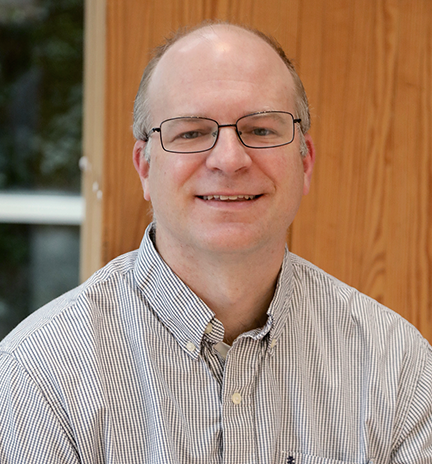About Greg Cooper

Email: gcooper@hudsonalpha.org
Phone: 256-327-9490
Location: 601 Genome Way, Huntsville, AL 35806
Human genetics and genomics
Millions of families spend years searching for a diagnosis for their loved ones. Greg Cooper, PhD, and his lab aim to end the diagnostic journeys for these families by increasing the utility of genome sequencing in disease diagnosis while making it more accessible to all.
Cooper’s work as a faculty investigator at the HudsonAlpha Institute for Biotechnology largely focuses on identifying and characterizing genes involved in rare developmental disorders, primarily in children. He and his lab develop computational tools and algorithms to sift through the human genome and identify changes that are prime suspects for causing the child’s symptoms.
Through research studies and initiatives like Clinical Sequencing Exploration Research (CSER) Project, Alabama Genomic Health Initiative (AGHI), and SouthSeq, Cooper and his lab have sequenced more than 1700 affected individuals. The team has provided genetic diagnoses to hundreds of these children and their families.
In addition to helping physicians diagnose rare diseases in children, identifying rare variants is also invaluable to the research community. The lab has submitted more than 200 genes to GeneMatcher, an online service that allows researchers to share genes of interest in order to collaborate with other scientists to solve genetic mysteries. This has led to more than 20 collaborative publications since 2016.
Cooper is thrilled by the opportunities that genome sequencing technology is opening up for children with rare and undiagnosed diseases. “The ability to find so many variants that were previously missed is exciting and holds great promise for diagnostic testing in the future,” says Cooper. “Long-read genome sequencing especially will become a powerful tool for research and clinical testing over the next few years.”
Cooper came to HudsonAlpha in 2010 after receiving his PhD in genetics from Stanford University and finishing postdoctoral work at the University of Washington in Seattle. He never wanted to be a clinician, but he is excited to see his research applied to human health.
“It’s thrilling to be able to say that basic research has now led to the ability to take a genome, extract something useful out of it and find a genetic variant that causes someone to be sick,” says Cooper. “Taking it the extra mile and translating that finding to the clinic to reduce the diagnostic journey of the next individual makes it even more fulfilling.”
2001-2006 PhD in Genetics, Stanford University, Stanford, CA
1997-2001 BS in Mathematics and Statistics, BA in Microbiology, summa cum laude, Miami University, Oxford, OH
2010-Present Faculty Investigator, HudsonAlpha Institute for Biotechnology, Huntsville, AL
2010-Present Adjunct Instructor, Department of Genetics, University of Alabama at Birmingham
2009-2010 Acting Assistant Professor, Department of Genome Sciences, University of Washington, Seattle, WA
2006-2009 Senior Fellow, Department of Genome Sciences, University of Washington, Seattle, WA, Advisors: Evan E. Eichler and Deborah A. Nickerson
2001-2006 PhD Student, Department of Genetics, Stanford University, Stanford, CA, Advisor: Arend Sidow, Thesis: Evolutionary constraints on the human genome
2015 – Committee for Institute of Plant Breeding, Genetics, & Genomics curriculum review
2007 UW Genome Training Grant Postdoctoral Fellowship
2007-2010 Merck, Jane Coffin Childs Memorial Fund Postdoctoral Fellowship
2001-2006 Howard Hughes Medical Institute Doctoral Fellowship
1999-2001 Goldwater Scholar
2010 – University Fellowship – The Ohio State University
2015 – Glenn and Helen Burton Feeding the Hungry Scholarship
2015 – Bailey Award for best-presented paper – APRES annual meeting
2013-2015 – PhD Scholar of Excellence Fellowship – University of Georgia
2010 – University Fellowship – The Ohio State University
